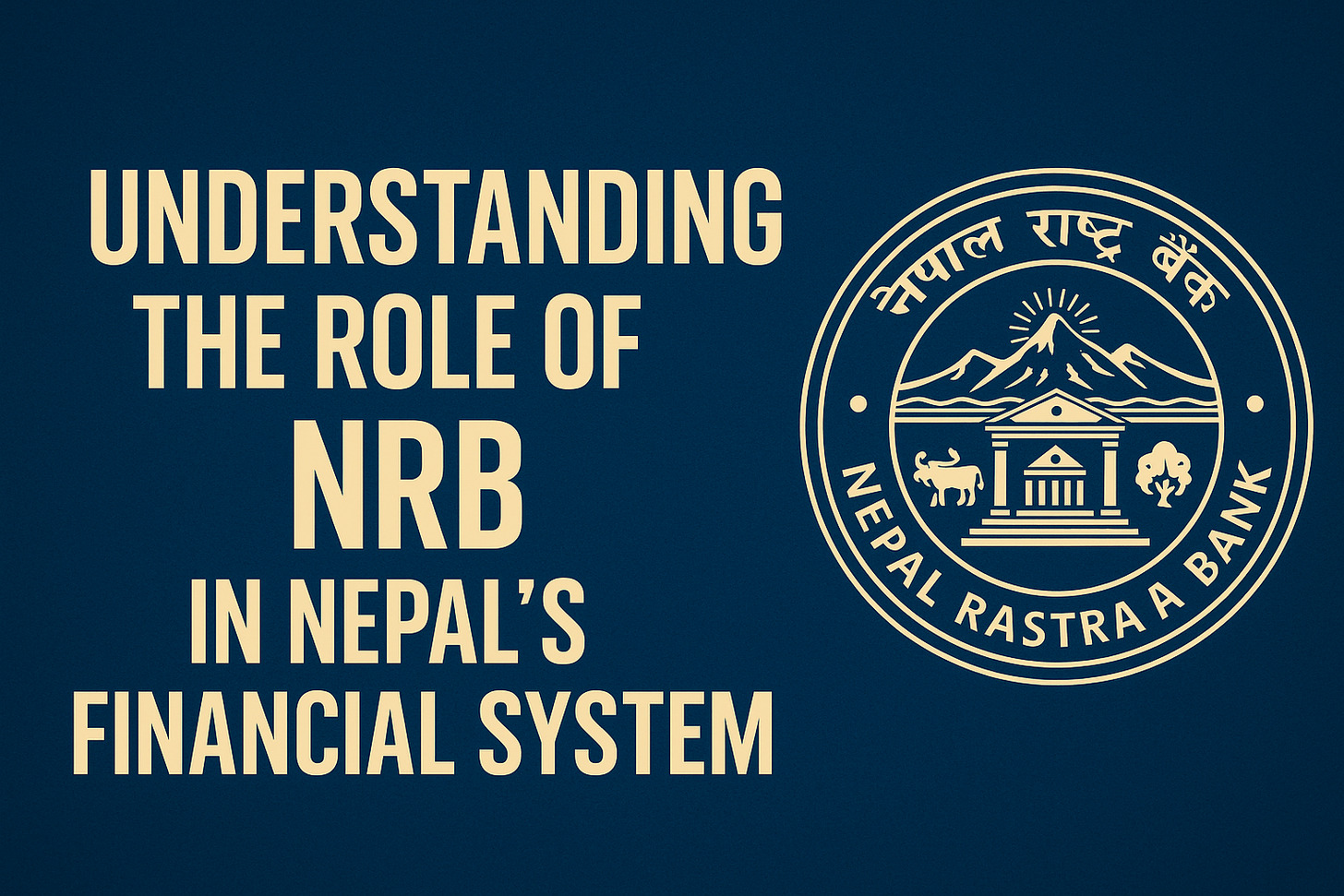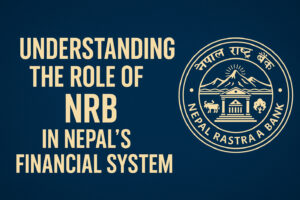Nepal Rastra Bank, known as NRB, stands at the center of the nation’s monetary framework. This institution shapes economic progress by regulating the money supply and guiding financial policies.
Its responsibilities touch everyday life, from setting lending rates to keeping the currency stable. Decisions by NRB help families and businesses manage their finances with greater confidence.
Key Takeaways
- Nepal Rastra Bank plays a central role in Nepal’s economy.
- NRB influences loan availability and deposit security.
- It monitors inflation and controls the flow of money.
- It protects the stability of the national currency.
- Its policies aim to uplift citizens and businesses.
Introduction to Nepal’s Central Bank
Nepal’s central bank has guided the nation’s financial progress for decades. It was founded on April 26, 1956, under the 1955 Act, focusing on currency issuance and steady development of core banking services. Its early role encouraged stability and streamlined operations, giving people a trusted monetary authority from the start.

Today, nrb provides oversight to commercial banks, development banks, finance companies, and microfinance institutions. Nepal Rastra Bank embraces a broad mandate with provincial offices offering helpful supervision and support. This presence eases everyday banking activities and nurtures nationwide financial growth. Through clear policies and a steady mission, nrb remains a key ally to communities seeking reliable economic progress.
Why Nepal Rastra Bank Holds Significant Authority
Financial oversight carries weight when a country entrusts one institution to guide monetary decisions. Skilled experts at the helm shape rules that keep markets steady and protect citizens’ interests.

Nepal Rastra Bank demonstrates its influence by setting guidelines that impact local banks and credit facilities. It ensures funds reach the nation’s vital sectors and maintains stability even when global events shift economic dynamics.
The Constitutional Backing for NRB
The bank’s authority draws strength from key laws, including the Nepal Rastra Bank Act, 2002. These legal frameworks support the autonomy of nrb, giving it power to regulate liquidity, foreign exchange reserves, and credit distribution.
Influence on Monetary and Fiscal Policies
Close coordination with government bodies helps nrb set interest targets that support growth. Parliament-approved mandates guide resource allocation, while regulatory independence enables swift moves during fiscal challenges. This balance preserves trust and keeps the financial landscape on track.
Evolution of NRB’s Policy Framework
Nepal Rastra Bank began its journey under the Nepal Rastra Bank Act of 1955. Early efforts revolved around issuing currency and stabilizing exchange rates. The bank later embraced a broader mission, guided by a new legal framework under the 2002 Act.
NRB introduced annual monetary policies in 2002/03 to refine its approach. This regular update cycle helped control inflation more efficiently and enhanced overall financial stability. Each revision brought fresh goals focused on transparent oversight and effective governance.
The shift from a narrow currency-centered role to a multifaceted regulator has strengthened the nation’s financial landscape. Revisions in policy have also simplified compliance, making it easier for institutions to adhere to clear guidelines. This adaptable strategy continues to empower Nepal’s banking sector, allowing it room to evolve while offering reliable services to the public.
Key Functions in Maintaining Financial Stability
Strengthening economic foundations calls for focused oversight of money supply and interest rates. These actions keep confidence high among businesses and consumers.
Monetary authorities often conduct checks on market liquidity and maintain healthy financial conditions. They remain vigilant about sudden shifts that might destabilize the economy.
Implementing Monetary Policy
Experts design specific guidelines to manage credit flow and preserve market discipline. Open market operations and reserve requirements are prime instruments. Decisions over policy rates help shape borrowing trends, reducing excessive risk and fostering steady growth.
Managing Interest and Inflation Rates
Technical teams analyze inflation indicators to keep prices balanced. By adjusting lending benchmarks, nrb limits abrupt changes in markets. Healthy inflation rates protect spending power and ensure that saving remains rewarding for families.
| Policy Tool | Function | Example |
|---|---|---|
| Open Market Operations | Control liquidity | Buying or selling government bonds |
| Reserve Requirements | Ensure bank stability | Mandatory reserve ratios |
This balanced approach guides nepal rastra bank actions, safeguarding economic well-being.
Regulatory Oversight of Commercial Banks
Sound supervision keeps the banking sector strong. This approach nurtures stability and consumer confidence. It contributes to a secure environment where people trust that financial institutions meet strict standards.
Issuing Guidelines and Compliance Measures
nrb issues directives aligned with Basel benchmarks to guide commercial banks. nepal rastra bank emphasizes clear reporting, strong governance, and balanced loan practices. These policies aim to protect depositors and maintain healthy liquidity. Each institution must comply with periodic inspections and submit regular assessments on capital reserves.
Risk Assessment and Stress Testing
Experts at nrb evaluate potential vulnerabilities through rigorous stress scenarios. nepal rastra bank verifies how banks manage credit exposures and unexpected market shifts. Results highlight areas in need of reinforcement, safeguarding critical funds and safeguarding clients from unwarranted loss.
Supporting Economic Growth and Development
Nepal Rastra Bank fosters inclusive financial programs that empower local communities. It plays a vital role in shaping credit channels for small ventures and critical sectors, boosting employment and progress.
NRB’s commitment to guidance in financial literacy motivates individuals to pursue new opportunities. The institution works with development banks and global agencies to strengthen rural investment, paving the way for diverse industries. Tourists, farmers, and young entrepreneurs find broader access to credit.
Its supportive policies encourage steady flows of investment and spark widespread confidence among stakeholders. Prudent monetary measures create an environment where businesses thrive, leading to stable development across the nation.
Collaborating with Government and International Bodies
Nepal Rastra Bank (NRB) focuses on shared goals with government agencies and global institutions. This aligns policy steps toward stable financial growth and a supportive economic climate.
Stronger partnerships foster knowledge exchange and secure technical guidance. Each initiative aims to benefit local commerce and encourage greater investment.
Partnerships with Regional and Global Banks
This institution engages with bodies like the Asian Clearing Union and the International Finance Corporation to encourage sustainable finance. Joint projects emphasize resource facilitation, trade settlements, and enhanced banking standards.
Coordinating with the Ministry of Finance
Close coordination between the Ministry of Finance and NRB unifies fiscal and monetary measures. Shared frameworks streamline currency management, credit facilities, and transparent budget execution.
| Institution | Collaboration Focus |
|---|---|
| Asian Clearing Union | Regional Settlements |
| International Finance Corporation | Sustainable Financing |
These strategic ties spark public awareness of fiscal changes. This fosters a unified response during times of economic stress and supports balanced growth across Nepal.
Ensuring Currency Stability
A consistent currency plays a vital role in daily life. Stable prices encourage people to save and spend with confidence. Nepal Rastra Bank (NRB) supports this by monitoring money supply and overseeing currency issuance. Shoppers, investors, and businesses rely on predictable exchange rates for secure planning and fair transactions.
NRB also reserves foreign currencies to shield the national economy from unpredictable global shifts. The institution has historically linked the Nepali rupee with the Indian rupee to maintain fair trade conditions and prevent sharp swings in import costs. This helps make everyday commodities more accessible to households.
“Stable currency is a cornerstone for long-term financial health and public trust.”
People benefit when inflation remains manageable. Frequent reviews of fiscal indicators guide adjustments that protect purchasing power. Nepal Rastra Bank keeps the currency clean and well-circulated, which reinforces trust. As economic landscapes shift, NRB’s vigilance can uphold a balanced environment where growth flourishes.
Promoting Consumer Protection in the Banking Sector
Protecting customer rights shapes a healthier financial environment for everyone. This focus on ethical practices helps individuals feel confident about entrusting their savings and investments to established institutions. Clear guidelines and transparent policies minimize risks, guiding people toward secure options that safeguard their hard-earned money.
Safeguarding Depositors’ Interests
Nepal Rastra Bank supports deposit insurance measures and fair lending rules. These initiatives ensure that funds remain protected and potential losses are reduced when unexpected events occur. Through ongoing reforms, banks must maintain high standards of accountability and clarify all costs before customers commit. Such efforts cultivate trust across diverse communities.
Addressing Customer Grievances
Official complaint-handling channels grant individuals a direct route to report issues and seek solutions. Partnerships with nrb encourage banks to respond in a timely manner, reinforcing customers’ faith in the financial system. This shared responsibility upholds a culture of fairness, where each concern is addressed with care and dedication.
Challenges and Limitations
Some challenges weigh on the mission of Nepal Rastra Bank (nrb). Political disputes have slowed the appointment of a governor, creating uncertainty in key policy decisions. The persistent liquidity crunch strains commercial banks, urging swift action to keep markets steady. nrb grapples with meeting international obligations, raising the need for robust oversight.
Stakeholders cite the Financial Action Task Force (FATF) grey list as a pressing concern. This classification compels strict monitoring of money flows to curb financial crime. The bank’s autonomy can suffer pressure from shifting political interests, yet it remains a crucial force for economic stability. Flexible reforms and open dialogue are essential to uphold transparent governance.
Leaders acknowledge these hurdles, viewing them as catalysts for systemic improvements. Ongoing collaboration with legislators, regulators, and private institutions fosters resilience. The road forward involves embracing modern risk assessment tools, while championing balanced growth. Strengthening accountability within Nepal Rastra Bank creates avenues for trust, signaling a firm commitment to evolve despite complex limitations.
Future Outlook of Nepal’s Financial Landscape
Nepal’s banking system is poised for sweeping transformation. New digital tools and easier access to virtual platforms are guiding how nrb updates its operational strategies. Cybersecurity protocols and flexible guidelines may define how institutions adapt to shifting market expectations in modern finance.
Some experts believe nepal rastra bank will deepen its collaboration with technology providers. Financial firms may begin prioritizing fintech-driven solutions that simplify cross-border transactions. This focus can boost citizen confidence, bolstering long-term stability in local markets and paving the way for growth.
Expected Trends in Banking Regulations
Regulatory directives might become more agile and eco-friendly. Policymakers could promote sustainable lending practices aimed at minimizing environmental harm. Frameworks around capital requirements may also tighten, defending stakeholders from unpredictable swings while highlighting the reshaped role of oversight agencies.
Potential Impact of Global Economic Shifts
Fluctuations in foreign exchange and commodity prices can influence interest rate decisions. Financial institutions may introduce fresh products to handle emerging risks. Global events and rapid innovations are likely to impact how nepal rastra bank positions itself, keeping Nepal’s financial environment adaptable and resilient.
| Key Focus | Description | Possible Outcomes |
|---|---|---|
| Cyber Resilience | Advanced security protocols to deter breaches | Greater trust in banking networks |
| Fintech Integration | Partnerships under nrb guidelines | Improved digital services |
| Sustainable Funding | Green lending initiatives and risk oversight | Balanced economic and environmental gains |
Conclusion
Nepal’s economy moves forward with ambition and creativity. The nation’s banking structure stands at the core of that progress. Through innovative policy approaches, Nepal Rastra Bank maintains an environment where trust and accountability thrive.
Effective guidelines on currency stability and monetary measures reflect this bank’s unwavering commitment. nrb has shown resilience in times of economic pressure. Its leadership encourages cooperation among private investors, international partners, and local communities.
Better access to digital financial tools and customer-centric solutions are part of the new wave. This path brings balance and efficiency, lending stability to daily transactions. A future marked by growth and adaptive changes calls for continuous oversight and transparent reforms. Careful attention to policy execution ensures that financial services reach every corner of the nation. As these efforts grow, Nepal’s financial outlook remains guided by forward-looking ideas and clear vision.





